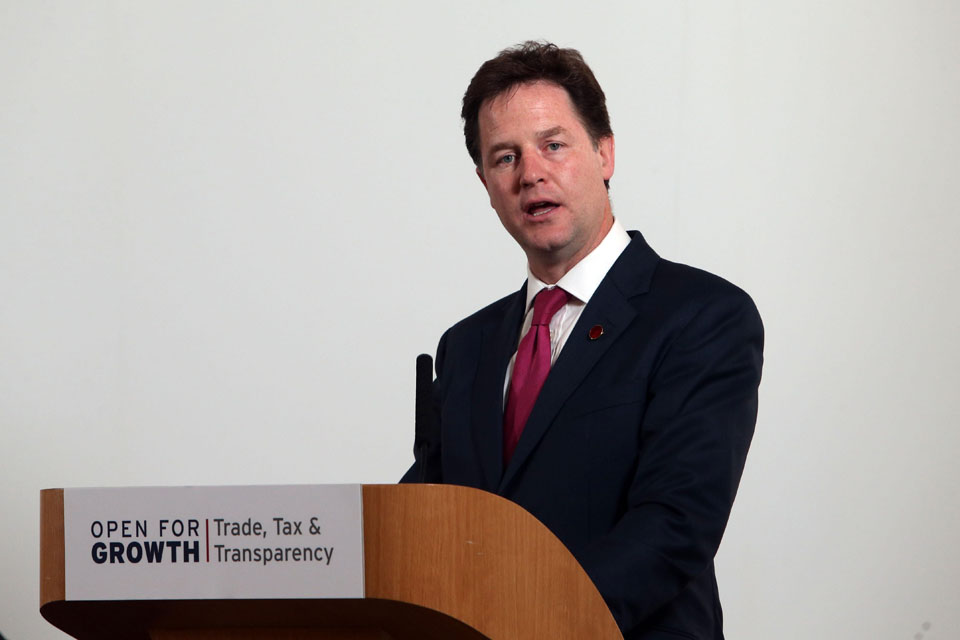Deputy Prime Minister's speech at G8 Open for Growth event
The Deputy Prime Minister spoke on extractives transparency at the G8 ‘Open for Growth’ Trade, Tax, and Transparency event.

We know why we’re here. People across the world want and expect us - governments, businesses and NGOs - to work together to deliver strong economies and fairer societies.
These issues affect those in both the developed and developing world. And we know the costs, if we fail to act now.
In the world’s poorest countries, lost revenue - through corruption, or unfair business practices - results in lost lives. It equates to tens of millions of people denied vaccinations against preventable diseases; young girls kept out of the classroom as their families struggle to make a living; and households stuck in poverty, because their countries lack the money and infrastructure to help them progress.
Elsewhere in the world, less trade means lower growth, and fewer taxes paid fairly hurts investment in public services vital to people’s day-to-day lives.
Wherever it’s happening, as governments, citizens, business leaders, activists and consumers, we have a responsibility to challenge that behaviour and do what we can to stop it.
On extractives transparency:
Natural resources should be a gift not a problem. Managed well, they ensure traders have roads to transport their goods. Children have schools they can go to, to learn. Desperately ill patients can get the medications they need from their doctors. And local people have jobs to help their families prosper.
But for too long, especially in the world’s poorest countries, dodgy deals in this industry have denied people that future. Millions of dollars have been lost through corruption. Wasting talent, wasting lives.
As demand increases. And new technologies make it easier to extract natural resources sustainably. We need to ensure governments and citizens across the world know what they’re owed and can access what is due to them.
But we need a global commitment to make this work more transparent, open and accountable.
That’s why we’re launching partnerships with 8 resource-rich countries - many of them represented here today - Ghana, Guinea, Tanzania, Burkina Faso, Colombia, Myanmar, Peru and Mongolia.
We think the Extractive Industries Transparency Initiative (EITI) is a good way to drive a lot of this global work. These standards are now tougher than before. And 39 countries are already implementing them: to make the extractives business they do more accountable to the public.